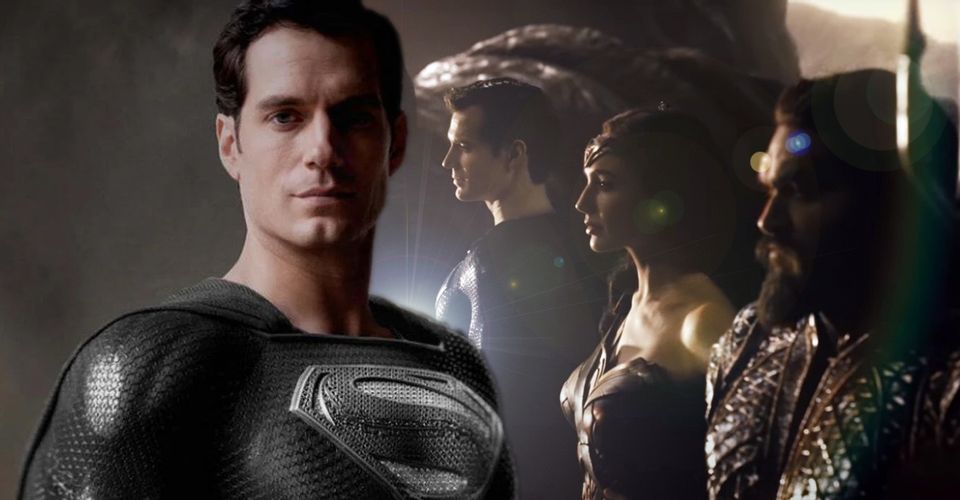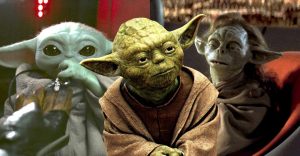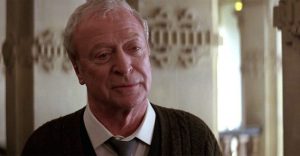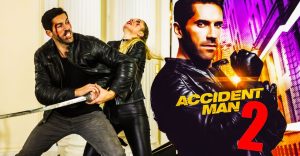Justice League Trailer: Why Hallelujah Is Actually Perfect For Snyder’s Cut

The Justice League Snyder Cut trailer released at DC FanDome features the song “Hallelujah”; while some feel the Leonard Cohen song is overused, the 1984 track is a perfect representation of Snyder’s journey with the project. “Hallelujah” is a beautiful song and a pop-standard — the kind of emotionally-charged ballad associated with weddings and funerals, thanks to the covers by Jeff Buckley and Rufus Wainwright. For the Snyder Cut, however, the significance of “Hallelujah” is more implicit; the song wasn’t chosen to impart the trailer with shallow emotional weight, but to signify the director’s complicated history with — and no doubt feelings for — Justice League.
A good song can make or break a trailer; The Batman trailer uses Nirvana’s “Something in the Way” to develop its grunge and angst overtones, while The Suicide Squad “Roll Call” trailer uses the song “Oh No!!” by Grandson to foreshadow the impending high body count of the movie. For Justice League, however, the significance of “Hallelujah” has to do with the project’s past history, rather than to set up audience expectations. It’s an unconventional approach for an unconventional release.
There’s nothing about the Snyder Cut that is traditional: the project is the result of a passionate fan campaign — one born from disappointment with how Justice League was handled following Snyder’s departure from the project. Tragic circumstances prompted Snyder’s exit from Justice League back in May 2017, and regardless of how Snyder feels about his fans passionately lobbying for his return to the DCEU, he must have complicated feelings about revisiting what was surely a very difficult period in his life. The emotional complexity of the situation is perfectly represented by Cohen’s original version of “Hallelujah” — simultaneously unsettling and beautiful, cheesy yet sincere, it’s a song that more than any other embodies the inherently contradictory experience of love.
“Hallelujah” Song Meaning Explained

The song “Hallelujah” expresses the cycle of loss and love at the heart of all meaningful relationships. Cohen’s lyrics are often dizzying, circular journeys of a narrator struggling to make sense of it all. “Hallelujah” relies on deceptively simple lyrics to investigate the incredibly complicated and multifaceted nature of love, framing the experience as bittersweet. On one level, the song tells the story of a man trying (and presumably, failing) to impress a woman with his music. References to Biblical figures like David and Samson suggest something deeper and more ancient, however, turning the song into a broader discussion about one’s capacity to love — whether it’s a spiritual love, like David’s song of praise to God, or a romantic love, like Samson and Delilah. In both cases, love is power: for David, his love of God gives him power over his enemies, whereas Samson’s renders him powerless to Delilah’s treachery.
The refrain “Hallelujah” — an expression or rejoicing or worship — is sung with a melancholy cadence, contradicting the nature of the term. Cohen is celebrating love, elevating it through celestial comparisons — but he also condemns it by pointing to the painful experience of what is presumably unrequited passion. In the end (at least in the version featured in the trailer, as well as Watchmen, another Snyder film) the narrator decides it’s all worth it: The song acknowledges that the experience is painful, but argues that it’s worth the suffering.
Why “Hallelujah” Is The Perfect Song For The Snyder Cut

Thematically, “Hallelujah” fits the tone of JusticeLeague. Unlike most trailers, this one doesn’t need to sell the movie’s story or entertainment value — it’s essentially a remake, so instead, Snyder focuses on selling himself for what has become the auteur’s magnum opus. There’s an unworldly, epic scope to Snyder’s vision for the DCEU that was removed from Joss Whedon’s version. The first image in the Snyder Cut trailer is Darkseid, one of DC’s New Gods, followed by a shot of a dying Superman. Wonder Woman (as Diana Prince) approaches what may be the Spear of Destiny. So many of the images in the trailer are loaded with significance and the song’s lyrics matches the grandiose tone the trailer sets; yet, there’s a playfulness inherent in Cohen’s song that prevents the trailer from becoming another over-the-top, blockbuster superhero movie.
The choice to use Cohen’s recording of “Hallelujah” is both unexpected and meaningful: Despite its poetry and philosophy, Cohen never takes himself too seriously, contrasting his own message with his casual drawl. Snyder understands this, having implemented the song for similar effect in Watchmen. Justice League may be epic, but it’s still grounded in an ordinary love of cinema. “Hallelujah” would not have fit in Joss Whedon’s Justice League, so its use here also reminds viewers that this is distinctly Snyder’s creation. Most (if not all) of the clips — like the black Superman suit or Bruce Wayne’s sincere pep-talk — are included to demonstrate how Snyder’s vision differs from Whedon’s; similarly, the trailer’s music, by its very nature, proves to viewers that this Justice League is fundamentally different.
Symbolically, the song’s message about passion — how joy and loss are intrinsic to the experience — reflects Snyder’s own bittersweet experience with Justice League. The director knows firsthand the power Cohen refers to, as well as powerlessness and failure. The trailer uses an edited version of the Cohen recording, highlighting the director’s own experiences by carefully featuring specific lyrics. Snyder addresses the past, acknowledging that he “did [his] best, it wasn’t much.” He then promises both that he has always approached the project earnestly and that he deserves this second chance (“I didn’t come to fool ya“). The director’s own personal struggles and feelings being overthrown by his undying devotion to his craft are communicated through Cohen’s heartfelt pledge “And even though it all went wrong ‘/ I’ll stand before the Lord of Song / With nothing on my tongue but Hallelujah.” Like Cohen, Snyder shares a willingness to be painfully earnest and vulnerable through his art. Through the song, Snyder recognizes that he failed originally and rejoices in getting this second chance — even if it is tainted by the project’s history.
Snyder’s Justice League journey involves loss and powerlessness — both in terms of his personal journey and the property itself. HBO Max is releasing Justice League as a 4-part miniseries — a format that will suit Snyder’s vision better than a traditional theatrical release would have. Had Snyder not left the project, he still would have faced studio pressure to keep the movie’s runtime under 2 hours, and there’s no guarantee that he would have been satisfied with the end result. Had Whedon’s handling of Justice League been more successful, the “Release the Snyder Cut” movement would not have occurred. Snyder — and his fans — are getting this second chance precisely because of how the original events unfurled.
—
Although Snyder reportedly picked “Hallelujah” for Justice League two years ago, long before the Snyder Cut was officially on its way to being released, the song seems uniquely appropriate to represent both the scope of Justice League as well as the culture of expectations that surrounds it. Presumably, Snyder is grateful to both his fans for their support as well as HBO Max for giving him this opportunity to fulfill his original artistic vision; yet, it doesn’t undo everything that happened, and most likely, Zack’s total plan for the DCEU will remain unrealized. Fans are rejoicing, but — as the song goes — “it’s a broken Hallelujah.”
About The Author


















